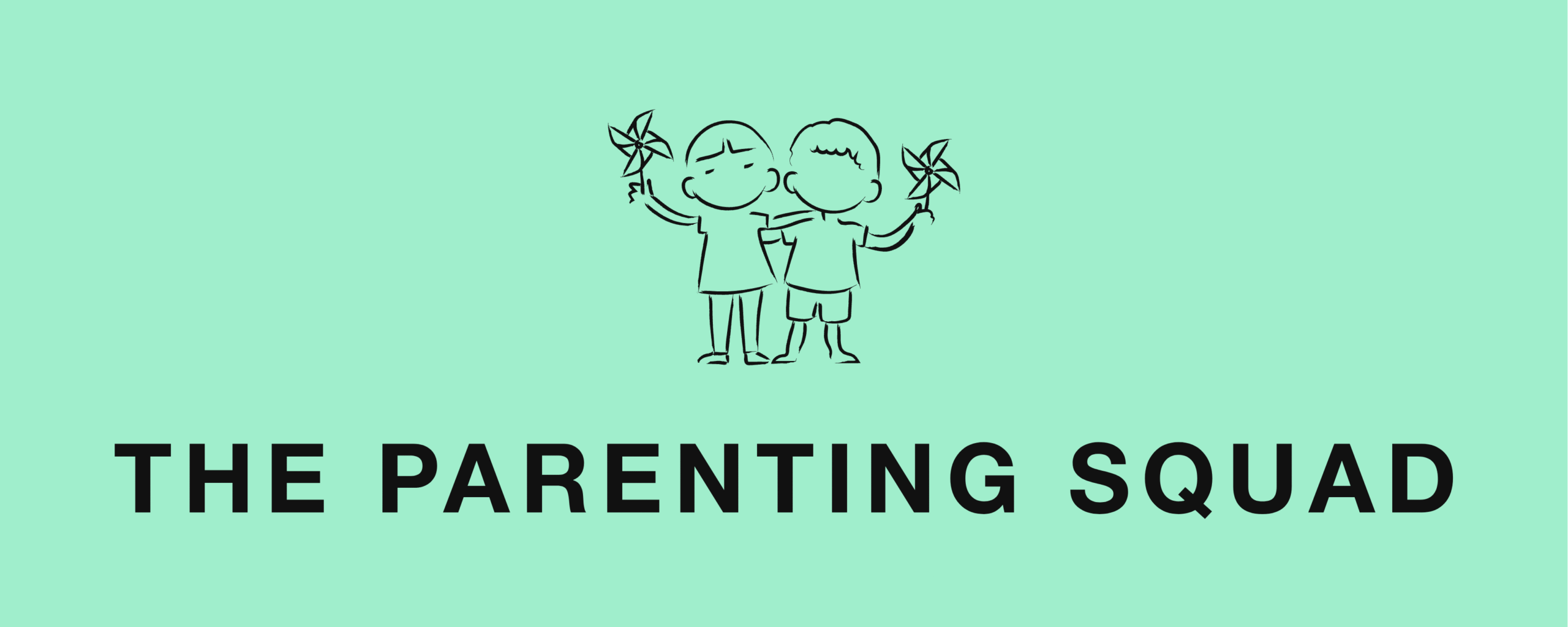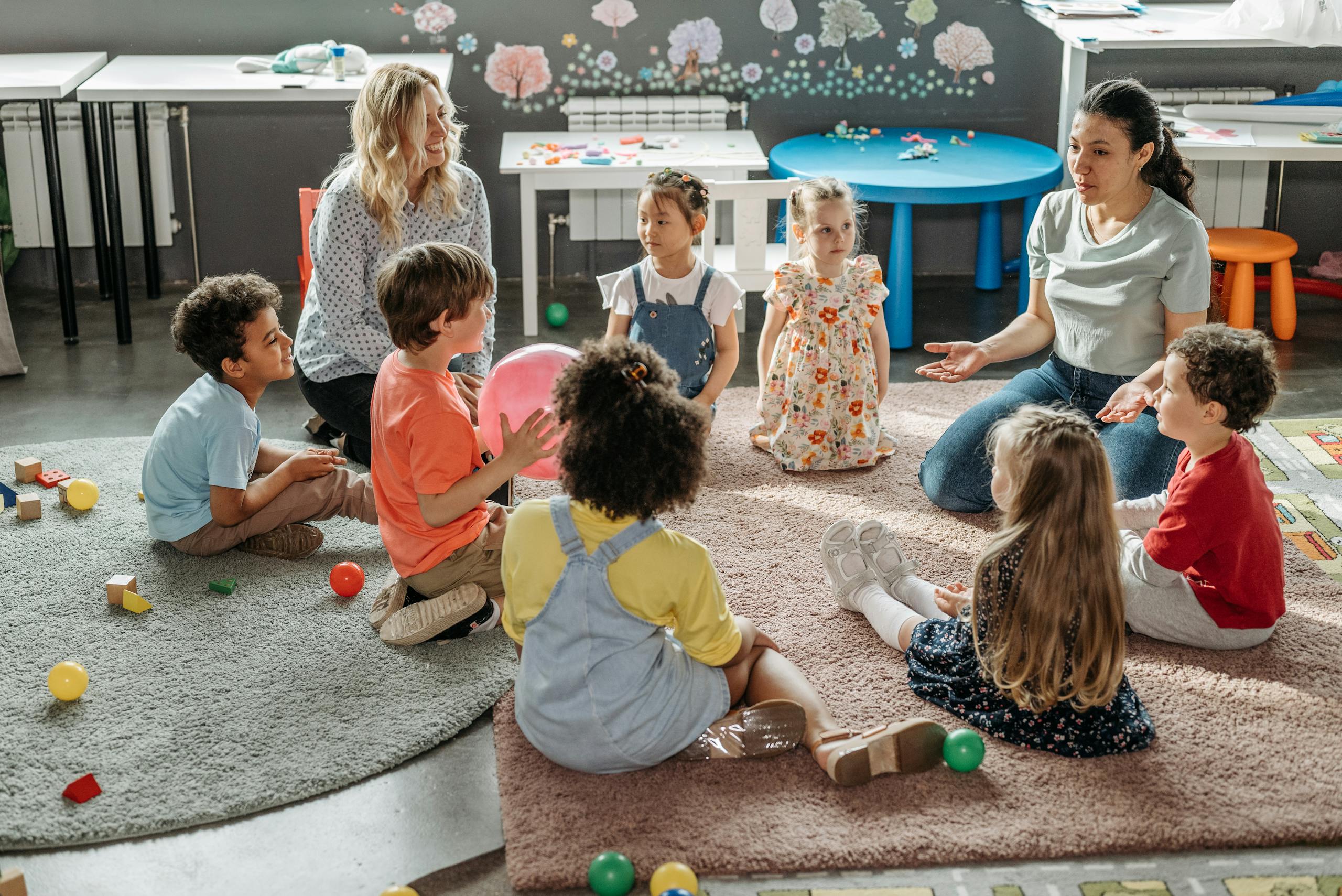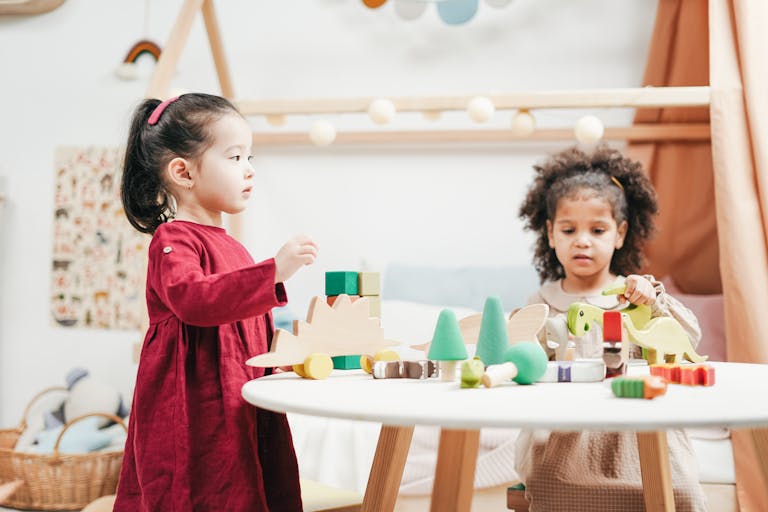Choosing the Right Early Childcare: 7 Questions Every Parent Must Ask
You’ve been searching for weeks. Your laptop screen shows seventeen childcare centers, each with a sparkly website promising the world for your little one. Your phone has more screenshots of preschool tours than family photos. Sound familiar?
Finding the right early childcare feels like trying to solve a puzzle while blindfolded—and that puzzle happens to involve the most precious thing in your life. The pressure is real, and honestly, it’s enough to make any parent want to hide under a blanket fort (which we’ve all considered).
Here’s the thing: choosing quality early childcare isn’t just about finding someone to watch your child while you work. It’s about finding a place where your little one will thrive, grow, and maybe even learn that sharing toys won’t cause the world to end.
The right childcare setting can boost your child’s development while giving you the peace of mind to tackle your day without constantly wondering if everything is okay. Choosing quality early childcare lays the foundation for your child’s future success, helping them build skills and confidence that will benefit them for years.
We’ve assembled seven essential questions to help transform your childcare hunt from overwhelming chaos into confident decision-making. Think of this as your GPS for navigating the early childcare landscape—because you deserve to feel good about where you’re leaving your most important little human. These decisions help build a strong foundation for your child’s future.
Why Choosing the Right Childcare Matters
Quality early childcare does more than keep your child safe and entertained (though those are important too). Research shows that children in high-quality early care programs develop stronger cognitive skills, better social abilities, and more emotional resilience. They learn to navigate friendships, express their feelings, and discover that the world is full of fascinating things to explore. In early childhood education settings, children are students who gain essential knowledge that supports their growth and development during these formative years.
For parents, the right childcare choice creates a ripple effect of benefits. When you trust your child’s caregivers, you can focus on work without that nagging worry in the back of your mind. You sleep better knowing your little one is in capable, caring hands. Plus, you’ll probably stop checking your phone every five minutes for updates (okay, maybe every ten minutes).
According to the National Association for the Education of Young Children, children who attend quality early childhood programs are more likely to succeed academically and socially throughout their school years. Early childhood education equips students with the knowledge and skills they need for long-term success. That’s a pretty powerful argument for taking your time to find the right fit.
Understanding Your Child Care Options
When you begin your search for early childhood education, it can feel like a dizzying array of choices. From nurturing child care centers to vibrant preschool programs, each option offers a unique foundation for your child’s learning and development. Early childhood education programs like preschool and pre-kindergarten are designed to spark curiosity and build essential skills to support your child’s future success. Meanwhile, child care centers provide a safe, caring environment for children of all ages, ensuring that every child receives the attention and support they need to thrive.
As you explore your options, understand what each program provides. Some focus on structured learning, while others emphasize play-based experiences. Think about your child’s personality and learning style—do they flourish in a busy classroom or need a quieter, more individualized approach? Researching different early education programs and visiting centers in person can help you find a setting that feels right for your family. Remember, high-quality child care is more than just supervision; it’s about building a strong foundation for your child’s education, growth, and brighter future.
Considering Your Family’s Needs and Lifestyle
No two families are exactly alike, and your child care solution should reflect what works best for your unique situation. Maybe you’re a parent with a demanding job that requires early drop-offs or late pick-ups, or perhaps your family needs a provider who understands and supports children with special needs. Early childhood education programs can be flexible and responsive, offering a range of services to meet the diverse needs of families.
Start by thinking about your daily routine and what kind of support would make life easier for your family. Do you need care that covers weekends or evenings? Are you looking for a program that offers enrichment activities or extra support for learning differences? The right child care provider will work closely with you to understand your child’s needs and help them feel comfortable and confident in their new environment. By considering your family’s lifestyle and priorities, you’ll be better equipped to find a program that meets your needs and helps your child learn, grow, and feel supported every step.
Exploring Community Resources and Partnerships
You don’t have to navigate the world of child care alone—your community is full of resources and partnerships designed to support families like yours. Local libraries, community centers, and even your workplace may offer programs, workshops, or support groups to help you make informed early care and education decisions. These resources can connect you with other parents, provide expert advice, and offer practical tools for balancing work, family, and child care responsibilities.
Many employers now recognize the importance of supporting working parents, offering benefits like on-site child care or flexible work schedules. Don’t hesitate to ask your HR department about family-friendly policies that could make your daily routine smoother. Early care and education programs often collaborate with community organizations to support children and families comprehensively. Center directors and educators work together to create a network of care that strengthens not just individual families, but the entire community. By tapping into these resources, you’ll find valuable support and opportunities to make your child care journey easier and more rewarding.
7 Questions to Ask When Choosing Early Childcare
1. Is the Environment Safe and Secure?
Start with the basics that’ll help you sleep at night. Look for controlled entry points—only authorized individuals should have access to the facility; you shouldn’t be able to wander in off the street. Check that electrical outlets are covered, cleaning supplies are locked away, and playground equipment looks sturdy enough to handle tiny daredevils.
Ask about emergency protocols. What happens during a fire drill? How do they handle medical emergencies? A good childcare provider will have clear procedures and won’t mind explaining them. It’s also vital that their protocols meet state safety regulations and standards. If they seem annoyed by these questions, that’s your cue to keep looking.
Trust your parental radar here. If something feels off—maybe the building seems rundown or you notice safety hazards—listen to that instinct.
2. What is the Staff-to-Child Ratio?
This number matters more than you might think. Lower ratios mean educators can provide more individual attention for your child, which translates to better care and development opportunities. Look for ratios around one caregiver to 3-4 babies for infants. For toddlers, 1 to 4-6 children is ideal. Preschoolers can handle slightly larger groups, but 1 to 8-10 should be the maximum.
Maintaining appropriate ratios helps centers meet recommended standards for quality care, ensuring that educators can focus on each child’s needs.
These ratios also impact safety. Caregivers who aren’t stretched too thin can respond quickly to needs and potentially prevent accidents. Plus, your child is more likely to form meaningful relationships with their caregivers when those caregivers aren’t juggling fifteen other little ones.
3. What is the Caregiver’s Experience and Training?
You want people caring for your child who know what they do with tiny humans. Ask about educational backgrounds, certifications in early childhood development, and ongoing training requirements. Ask whether staff have completed courses or coursework supporting children with special needs. It’s also valuable to know if staff are considered experts in early childhood education, as this can reflect higher skill and knowledge. Many states require specific credentials for childcare workers, so don’t hesitate to ask about these.
A great question: “How do you handle challenging behaviors like tantrums or conflicts between children?” Their answer will tell you a lot about their approach and experience level. You want caregivers who see challenging moments as teaching opportunities, not just problems to manage. Caregivers must understand each child’s unique needs, including those with special needs.
Finally, don’t forget to ask about the types of study and professional development courses staff have completed to stay current in the field.
4. Does the Curriculum Match Your Goals?
Even if your two-year-old isn’t ready for calculus, they should still be engaged in age-appropriate learning activities. Look for programs emphasizing learning through play—building with blocks teaches spatial skills, art projects develop fine motor skills, and story time builds language development. High-quality educational content in the classroom can make these activities more engaging and compelling, supporting both teachers and children.
Consider what’s essential to your family. Do you want structured learning activities, or do you prefer a more play-based approach? Some programs focus heavily on academic readiness, while others prioritize social and emotional development. A well-designed curriculum can strengthen children’s social, emotional, and cognitive development, helping them thrive in any classroom setting. Neither is right nor wrong, but one might better fit your child and your values.
5. How Does Communication Between Caregivers and Parents Work?
You’ll want to know how your child’s day went beyond just “fine” when you pick them up. Ask about daily reports, photos, or communication apps that let you peek into your child’s day. Many modern childcare centers use apps that send pictures and updates throughout the day—perfect for those “I wonder what they’re doing right now” moments. These platforms also make it easy for parents to contact staff directly if they have questions, need support, or want to discuss concerns.
Also, ask how they handle bigger concerns or milestones. Will they call you immediately if your child gets hurt or reaches a developmental milestone? Good communication helps you feel connected to your child’s day and ensures you’re on the same page about their care.
6. What is the Daily Routine Like?
Children thrive on predictability, so ask for a typical daily schedule. Look for a good balance of active play, quiet time, meals, and learning activities. The routine should be structured enough to provide security but flexible enough to accommodate individual needs.
If your child still naps, pay attention to naptime policies. Some centers are rigid about when children must sleep, while others are more flexible. If your little one is transitioning from naps, find out how they handle that adjustment period.
Also, ask if the center offers care during evenings or weekends to accommodate family schedules.
7. What’s the Community Feel Among Families?
The families already at the childcare center can tell you a lot about the environment. Ask about parent-teacher meetings, family events, or opportunities to connect with other parents. A strong community can provide support, friendships, and backup babysitting arrangements.
Don’t be afraid to ask for references from current families. Most quality childcare providers are happy to connect you with satisfied parents who can share their experiences. If they hesitate to provide references, that’s worth noting.
Creating a Shortlist of Potential Providers
With a clearer sense of your family’s needs and the types of child care available, it’s time to organize and create a shortlist of potential providers. Start by gathering recommendations from friends, family, and trusted community members. Online reviews and local parenting groups can also offer helpful insights. As you research, pay close attention to each provider’s qualifications, experience, and approach to early childhood education.
Visiting centers in person is a must—there’s no substitute for seeing the environment firsthand and meeting the educators caring for your child. Ask about their training, coursework, and ongoing professional development. A quality child care center will be transparent about its staff’s education and eager to share how it supports children’s learning and development. Take note of how the staff interacts with children and families, and trust your instincts about whether the environment feels welcoming and safe. By carefully evaluating your options and asking the right questions, you can select a provider with the support, care, and educational foundation your child deserves.
Red Flags to Watch For
Some warning signs should send you running faster than a toddler with permanent markers. High staff turnover is a major red flag—if caregivers don’t want to stay, there’s probably a reason. Frequent job changes among staff can disrupt consistency for children and affect their sense of security. Lack of transparency about policies, procedures, or daily activities is another concerning sign. Be cautious if you notice incomplete policies or procedures, leading to confusion and potential safety issues.
Poor cleanliness is non-negotiable. Kids are messy, but the facility should be clean and well-maintained. If you notice strong cleaning chemical smells, that could indicate they’re overcompensating for cleanliness issues or using harsh products around children.
Most importantly, trust your gut. If something feels off during your visit, even if you can’t understand it, keep looking. It’s essential to build trust with your childcare provider. Your parental instincts are usually spot-on.
Tips for Making Your Final Decision
Visit during regular hours when children are present. You want to see how staff interact with kids during a typical day, not during a staged tour. Watch for warm, patient interactions and notice if children seem happy and engaged.
Ask other parents in your community for recommendations. Personal experiences from trusted friends can be incredibly valuable. Online reviews are helpful, but remember that every family’s needs differ.
Don’t forget to verify credentials and licensing. Your state’s childcare licensing department can tell you if there have been any violations or complaints. It’s also worth checking if organizations like the National Association for the Education of Young Children accredit the center. Speak with the center director about the program’s accreditation and staff qualifications to ensure the program meets high standards.
Ensuring a Smooth Transition to Early Childhood Education
Starting child care is a big step for both children and parents, but with some preparation, you can make the transition a positive experience. Begin by talking with your child about what to expect, using simple language and reassuring them that they’ll be safe and cared for. Establishing a consistent routine—like a special goodbye ritual or a regular drop-off time—can help your child feel secure and confident as they adjust to their new environment.
Communication is key during this period. Share important information with your child care provider about your child’s preferences, routines, and special needs. Early education experts recommend a gradual transition, allowing your child to spend short periods at the center before starting full-time. This gives you and your child time to get comfortable and build trust with the educators. Remember, it’s normal for children (and parents!) to need a little extra support during this time. Working closely with your provider and using available resources will help your child build a strong foundation for learning, growth, and a brighter future in their new care setting.
Finding the Right Match for Your Child’s Brighter Future
Choosing early childcare doesn’t have to feel like navigating a maze blindfolded. Armed with these seven questions, you’re ready to find a place where your child will be safe, happy, and supported in their growth. Remember, the “perfect” childcare center is the one that fits your family’s specific needs and values.
Take your time with this decision. It’s okay to visit multiple places and ask lots of questions. Quality childcare providers welcome engaged parents and thorough questions, which show you care about your child’s well-being.
Ready to start your search with confidence? Join The Parenting Squad community for support and advice from other parents who’ve been through this process. You’ve got this, and your little one is lucky to have such a thoughtful parent advocating for their care.







